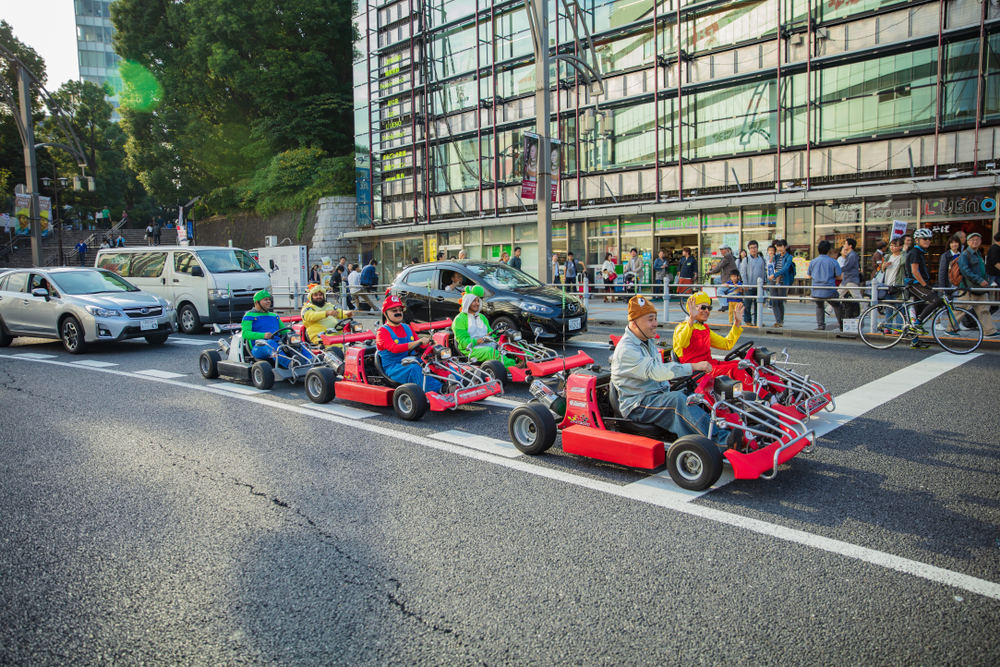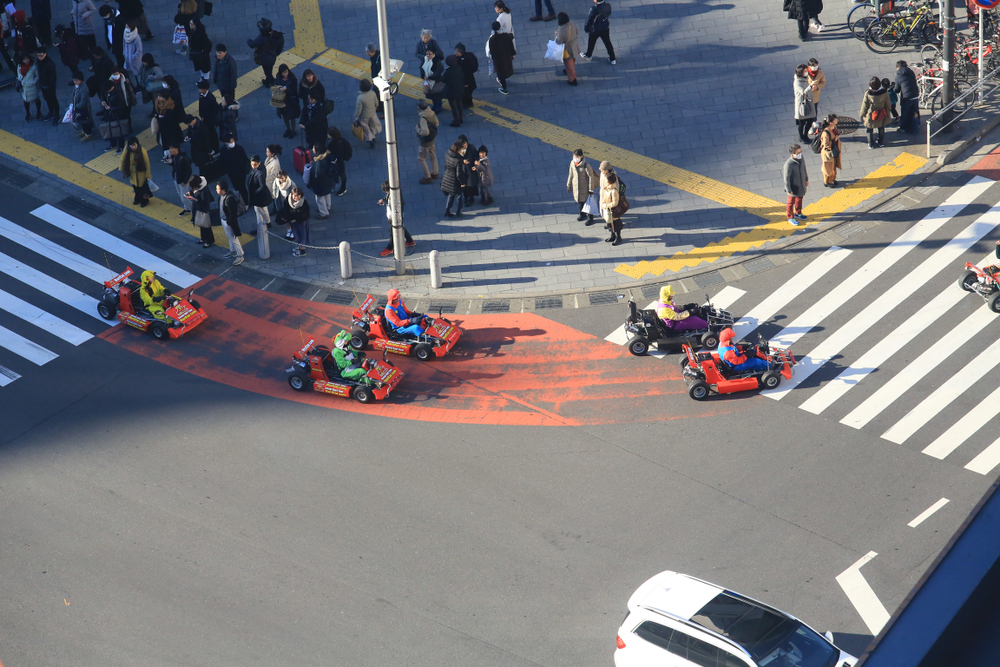You’ve seen the packs of people dressed as Princess Peach, Mario, Yoshi or other Nintendo characters zooming along the streets of Tokyo in their “Hi-Spec” go-karts, but for now the company that started the craze has been hit by the giant red turtle shell of the law.
It was announced last week that Nintendo, which launched the Super Mario Kart video game in 1992, won a lawsuit in Tokyo District Court calling for the go-kart tour company MariCar to cease and desist using costumes bearing likeness to the Nintendo-licensed characters.
Nintendo’s Day in Court
In 2017, Nintendo lost its initial lawsuit against MariCar (founded in 2015) contending that the company’s name bears a striking resemblance to the name MarioKart, widely known as MariKar for short.
The second complaint of the lawsuit, decided in Nintendo’s favor last week, contended that MariCar was not given permission to provide costumes of Nintendo characters to their customers and use images of the costumes in promotional materials – a violation of Japan’s Unfair Competition Protection Act.
As of September 27, the Tokyo District Court issued an order to cease all costume rentals that could be deemed as a copyright violation. MariCar is also set to suffer ¥10 million in monetary damages.

Back to the Starting Line
Nintendo states that they will “continue to take necessary steps against the damage being done to [their] brand and intellectual properties.”
All references and images promoting the Nintendo-themed costumes have been removed from the MariCar website replaced by images of happy riders wearing superhero and cartoon character costumes. The website now promotes a “real life superhero go-karting experience.”
A statement on the company’s website says MariCar is providing service as usual, with a caution notice that MariCar is in no way a reflection of the game Mario Kart, and riders should refrain from racing each other and throwing banana peels and red turtle shells at other participants.
“MariCAR is fully complied through local governing laws in Japan,” the website says.










